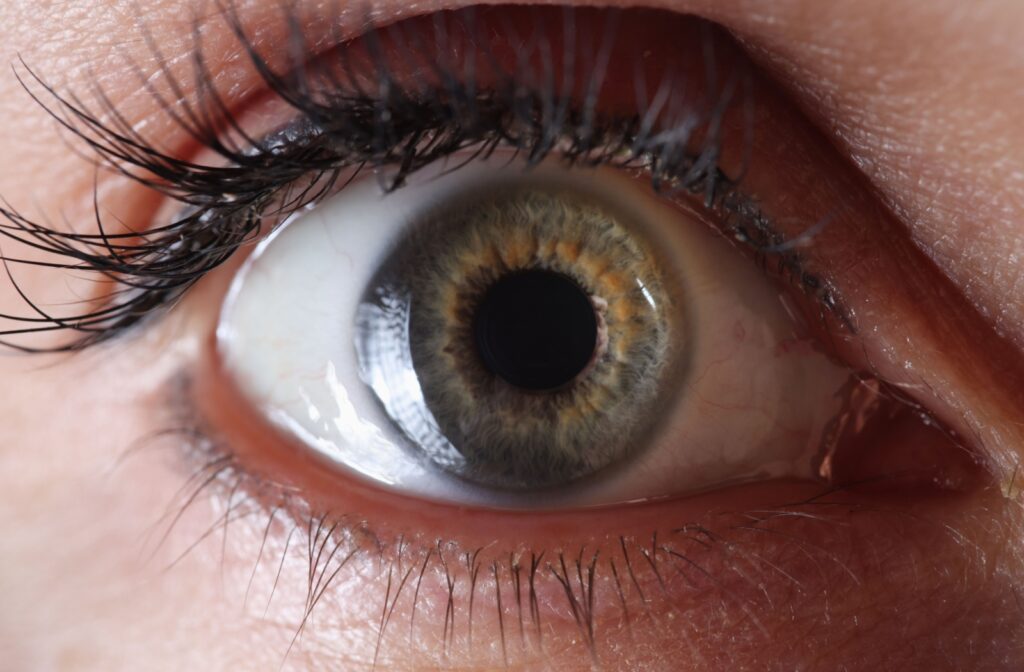Stress—it’s something we all experience. Whether it stems from demanding workdays, financial pressures, or personal challenges, stress is an inevitable part of life. But can it affect your physical health to the point of causing serious eye conditions impacting eye health, like retinal detachment?
This question has gained attention from both health enthusiasts and the public. While stress isn’t listed as a direct cause of retinal detachment, there’s evidence that it can affect your eye health. Today, we’re going to explore the connection (or lack thereof) between stress and retinal detachment.
What is Retinal Detachment?
First, it’s important to understand what retinal detachment is. The retina is the thin layer of tissue at the back of your eye that translates light into neural signals for your brain, allowing you to see. When the retina becomes detached, it pulls away from its normal position. This disrupts the eye’s ability to function, requiring immediate medical care to prevent permanent vision loss.
Symptoms of retinal detachment include:
- The sudden appearance of floaters (small specks that drift through your vision)
- Flashes of light
- Blurred vision
- A shadow or curtain effect over your field of vision
If you experience any of these symptoms, consult an eye doctor immediately, as retinal detachment is an ophthalmic emergency.
What Causes Retinal Detachment?
Classic causes of retinal detachment can include:
- Aging: The likelihood of retinal detachment increases with age, as the vitreous (the gel-like substance filling your eye) begins to shrink and pull away from the retina.
- Trauma: An injury to the head or eye may lead to detachment.
- Medical conditions: People with severe myopia (nearsightedness), previous eye surgeries, or conditions like diabetes are more at risk.
- Family history: Genetic predisposition can also play a role.
Noticeably absent from this list is stress, which begs the question—why does stress enter the conversation when discussing retinal detachment?
The Role of Stress on General Eye Health
While stress isn’t listed as a direct cause of retinal detachment, there’s evidence to suggest it can affect your overall eye health. Chronic stress often triggers a stress hormone called cortisol, which may impact bodily functions, including those associated with vision.
Here are a few ways stress is linked to eye health:
- Eye strain: Stress-related behaviors, such as constantly staring at digital devices, may cause digital eye strain, leading to discomfort and temporary blurred vision.
- Eye pressure: Stress has been associated with conditions like glaucoma, where elevated eye pressure can potentially lead to optic nerve damage.
- Vascular health: Stress may trigger complications with blood vessels, which could, in rare cases, impact the blood supply to the retina.
Although stress might indirectly influence the eye’s health, attributing retinal detachment to stress alone oversimplifies the issue.

Can Stress Cause Retinal Detachment?
To date, no scientific evidence definitively links stress as a direct cause of retinal detachment. The connection is more correlational than causational. For instance:
- Individuals who lead high-stress lifestyles may ignore early signs of retinal issues, allowing problems to worsen.
- Stressful situations that involve physical trauma—like sports injuries—could lead to detachment, but the causative factor here would be the trauma itself.
However, stress could exacerbate other underlying health conditions that are risk factors for retinal detachment, such as diabetes or hypertension. Addressing these risk factors may indirectly reduce your chances of experiencing retinal-related complications.
How to Reduce Stress for Better Eye Health
Whether stress causes retinal detachment, taking steps to reduce stress can improve your overall health, including your eye health. Here are some steps to consider:
- Practice mindfulness: Activities like deep breathing, meditation, or yoga can lower stress levels.
- Rest your eyes: Follow the 20-20-20 rule—every 20 minutes, look at something 20 feet away for 20 seconds.
- Stay active: Regular physical activity can release endorphins, reduce stress, and improve your overall health.
- Eat a healthy diet: Nutrients like omega-3 fatty acids, lutein, and vitamin C can promote eye health.
- Monitor your screen time: Reducing extended screen use can help combat digital eye strain, which is common in high-stress environments.
When to See an Eye Doctor
While managing stress is important, it’s equally critical to know when to consult a professional about your eye health. Retinal detachment is a medical emergency that cannot be treated at home. If you notice warning signs like flashes of light, new floaters, or shadows in your vision, don’t delay—book an appointment with your optometrist immediately.
Take Control of Your Eye Health
Stress may not directly cause retinal detachment, but maintaining a healthy lifestyle and staying mindful of your vision can lower your risks. Regular eye exams are key to catching any potential retinal or other eye health issues early.
If you’re experiencing changes in your vision or want to prioritize your eye care, Total Vision San Clemente is here to help. Our team at Griffin Optometric Group, located in San Clemente, CA, offers comprehensive eye care tailored to your needs. Learn more or book an appointment today by visiting Griffin Optometric. Stay proactive, stay healthy, and protect your vision for years to come!




